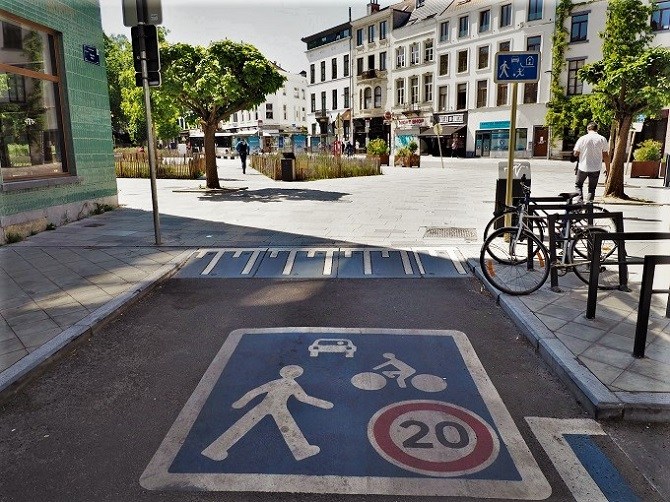Brussels ranks third in Europe in terms of measures announced to create cycling infrastructure during the coronavirus lockdown, according to an analysis by the European Cyclists' Federation (ECF).
On Tuesday, the ECP launched a Covid-19 measures tracker, which gives an overview of the measures taken by local or national authorities of nearly 300 cities for the recovery after the lockdown, in collaboration with its member organisations across Europe.
The lockdown imposed strict measures on Europeans, but it also gave citizens and decision-makers an opportunity to experience cities without air or noise pollution, with safer streets and more space for people, according to the ECF.
"The Covid-19 crisis, while tragic, is also a huge opportunity to accelerate positive change and reshape our cities – and we are embracing it,” said Jill Warren, co-CEO of ECF.
"Since the beginning of the recovery phase, European cities and national governments have allocated at least €823 million to active mobility; over 1,200 km of cycling infrastructure has been announced and more than 500 km have already been implemented," she added.
Brussels announced a total of 83.9 kilometres of infrastructural measures during the crisis, and is pointed to as one of the "most commendable examples" by the ECF, finishing behind only Rome (150 km) and Bologna (94.3 km). Of those measures, 40 km of those cycling lanes that Brussels announced to prepare for the lockdown phase-out in April.
Related News
- Lime to bring Jump's bikes back to Europe
- Ixelles' Saint-Boniface square will become permanently pedestrian
- Brussels' cyclists grow in numbers, study shows
Additionally, Brussels announced 36.5 km of zones or streets with the aim of calming or reducing traffic, such as cycling only or pedestrian zones. Additionally, Brussels announced plans for a combined 6.9 km of car-free zones.
In terms of infrastructure that has already been installed, with 36.6 km, Brussels finishes in second place, behind Granada with 60 km.
Of the 36.6 km implemented, almost 30 km are zones aiming to calm or reduce the traffic flow. Over 3 km of cycling lanes have been installed, and 3.7 km of car-free zones.
“I find it inspiring to see that cities, regions and Member States are taking this as a wake-up call. People do not want to go back to unbreathable air and dangerous streets," said Morten Kabell, co-CEO of ECF.
In total, 1,221 km of new cycling and walking infrastructure have been announced across Europe, of which 545 km are already ready for use.
"We are glad to confirm that the data shows many mayors are taking the right steps to promote cycling and walking. It is the only way we can consider anything positive came out of this crisis,” he added.
Maïthé Chini
The Brussels Times

